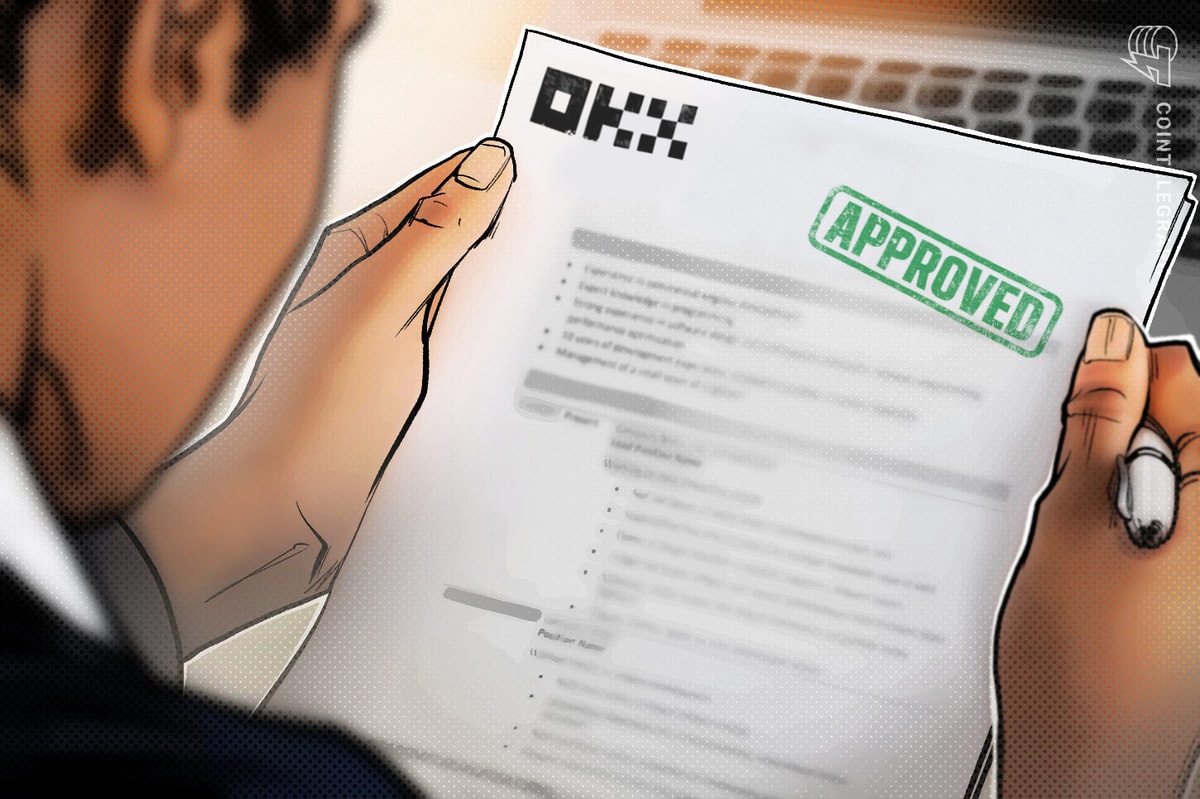What is KYC and how does it work?
KYC, which stands for "Know Your Customer," is a due diligence and security process implemented by financial institutions to verify the identity of their clients and determine the potential risks of illegal activities such as money laundering and terrorism financing.
By helping protect companies from doing business with entities that engage in illegal activities, KYC procedures increase overall financial security and regulatory compliance.
KYC verification also applies to a broad range of businesses, including decentralized and online initiatives. Platforms begin using the KYC process during the initial customer onboarding process and continue it throughout the entire business relationship to monitor suspicious activities.
The KYC process includes several key components, such as verifying customer credentials, creating a risk profile and detecting suspicious activity.
Why is KYC essential in keeping crypto exchanges safe?
The total value held by illegal addresses in crypto reached an all-time high of $20.6 billion in 2022, marking a notable increase from $18.1 billion in 2021. The report also suggests that anonymity and lack of security contribute to illegal crypto activities.

The predominant sources of crypto-related illicit revenues were scams, stolen funds and transactions. Source: Chainalysis
Further compounding the problem, a study found that 56% of virtual asset service providers worldwide demonstrated inadequate compliance with anti-money laundering (AML) regulations.
These statistics underscore the critical need for KYC measures to combat illegal activities. Emerging as a vital tool in protecting exchanges, KYC practices directly address the anonymity that often paves the way for illegal activities. Exchanges implementing KYC enhance transparency by preventing the concealment of funds acquired through illicit means. This reduces the risk of criminal activities such as money laundering and financial support of terrorist organizations.
In the volatile crypto market, where investor confidence can significantly affect market stability, an exchange's KYC application demonstrates that it cares about security. By mandating the submission of personal information and documents for verification, the process fosters a safer environment, deterring the misuse of its services for unlawful activities.
KYC also helps control reputational damage that may stem from hacks or data breaches by enabling exchanges to take quick action against suspicious activity.
How does the KYC process work?
The KYC process on crypto exchanges can include several basic steps designed to verify customer identity and assess potential risks of illegal activities:
- Verification of customer data: The exchange verifies the data by requesting an official document, such as a passport, driver’s license or birth certificate. Some exchanges require users to present official documents accompanied by a selfie.
- Liveness check: Some exchanges request a liveness check to determine whether the information belongs to the actual existing user.
- Customer risk rating: Based on collected and verified information, exchanges perform risk ratings for each customer.
- Continuous monitoring: Transactions and accounts are constantly reviewed to spot some triggers that may indicate illegal activities in a timely manner.
How KYC procedures are implemented may vary depending on exchanges’ specific compliance policies, regulatory requirements and operational practices.
What are different KYC practices?
KYC practices widely vary across different platforms and jurisdictions and reflect various regulatory requirements, risk management strategies and customer service approaches. Some applications of KYC can be listed as follows:
- Mandatory KYC: Many crypto exchanges, such as Binance and Coinbase, require KYC verification during the initial registration process for users to access all services.
- Non-mandatory KYC: Some platforms apply KYC verification based on trading volumes or account activities. For example, for fiat-to-crypto transactions, Changelly allows purchases under $150 without KYC — however, transactions exceeding this threshold require KYC verification, while crypto-to-crypto transactions have different requirements.
- High-value transactions: Platforms may apply advanced KYC and due diligence procedures for transactions that appear to be high-value or potentially suspicious.
- Withdrawal or transfer limits: Digital platforms may require identity verification for large withdrawal requests.
- Geographic requirements: Users in countries with strict financial regulations may be required to undergo more stringent KYC verification than other users.
The diverse applications of KYC on crypto exchanges and financial platforms underscore its role in complying with global regulatory standards, improving security measures and tailoring customer experiences in digital finance.
What are the advantages of non-mandatory KYC?
Mandatory KYC helps identify and mitigate risks associated with illegal financial activities by verifying all users who register on the platform. It prevents possible penalties by ensuring platforms comply with international AML standards.
Despite its positive aspects, mandatory KYC raises user privacy concerns as it requires users to disclose personal information. The KYC process can be costly for platforms to implement and maintain. Mandatory KYC can create friction in the customer onboarding process, potentially leading to a longer registration process and deterring potential customers.

At Changelly, KYC is required if the transaction is on hold. Source: Changelly
Conversely, non-mandatory KYC appeals to those valuing privacy and desiring to engage in financial transactions without disclosing personal details.
In the non-mandatory KYC model, the cost is reduced because the platforms do not apply extensive verification processes, which allows users to pay less commission. Simplified onboarding processes attract individuals looking for quick access to services without having to go through the KYC process.
For instance, in a CeDeFi ecosystem, Changelly uses an automatic risk prevention system and only requires verification if a transaction triggers the risk scoring system. This can happen because the system spots suspicious patterns like connections with illicit activities.
If the user’s transaction was marked as “KYC-required” by the risk scoring system, it is put on hold. The platform reviews the user’s personal and payment details to confirm the transaction’s safety before proceeding. Changelly strives to make the KYC process simple and accessible by actively working with agencies and regulators to make the crypto space more transparent for all market participants.
KYC procedures, which are required only in certain circumstances, facilitate users’ registration without compromising security.
How does non-mandatory KYC support crypto adoption?
Threshold-based or non-mandatory KYC procedures offer a strategic approach to balance global crypto adoption with regulatory compliance demands. Platforms that do not require KYC for small transactions or basic account functions can lower entry barriers for new users.
This approach is particularly beneficial in areas with limited access to conventional banking services, allowing users who value anonymity to participate in the crypto economy while adhering to local regulations.
By carefully implementing mandatory and non-mandatory KYC practices, platforms can protect users from financial risks while promoting broader access and adoption of digital financial services. Changelly previously assisted Europol in tracing the criminals behind the WannaCry hack and aided in locating and returning funds totaling $585,000 to the customers affected by the Bithumb hack.
As we look toward the future, the integration of KYC processes within the crypto ecosystem is poised to play a pivotal role in shaping a more secure, transparent and inclusive digital finance landscape. Platforms that leverage advanced technologies and adopt flexible KYC practices will drive global crypto adoption to new heights.
Disclaimer. Cointelegraph does not endorse any content or product on this page. While we aim at providing you with all important information that we could obtain in this sponsored article, readers should do their own research before taking any actions related to the company and carry full responsibility for their decisions, nor can this article be considered as investment advice.












